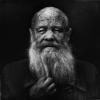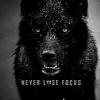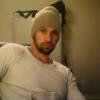Search the Community
Showing results for tags 'health'.
-
*The following is intended as the basis for a discussion in a local philosophy group I intend to hold. Opinions and feedback much appreciated* Why Study Philosophy?There are many reasons to study philosophy, from moral, to practical, to hedonistic/Epicurean (the philosophy of pleasure associated with 3rd century B.C. garden philosopher, Epicurus), to scientific, to even religious.Once we recognize that we don't know the ultimate answers to the most ultimate questions about how we should live, and the nature of the Divine and reality in general, the remaining desire to live a morally good life, a pious life, a happy life, of even simply an honest life, seems to compel us, as the great philosopher, Socrates, (who said 'All I know is I know nothing') famously maintained, to devote ourselves to this quest. In fact, as Plato famously argued, our ordinary, pre-philosophic beliefs are similar to living in a dark cave never having once glimpsed the light; we simply grow up acquiring beliefs much like an uncleaned shelf acquires dust over the years, never inquiring into the their ultimate basis. We are like a tree already with a trunk and branches but poorly formed roots. Thus often our self-value and sense of meaning in life is very precarious, because we are literally living a lie. This is the ultimate source of much of the rage and despair we see in people today. Even if the quest for an ultimate basis of our beliefs may turn out to be partly elusive, it seems that human beings, or at least some of them, have a great longing for such a basis that compels us to make this quest for the satisfaction of our own conscience, a quest that can be enormously therapeutic and by which we can come to know what Leo Strauss called 'the true human community', which due to the inherently separate and private nature of the body, can only ever be a community of thought, of ideas, or of the mind.Science today, just like religion in the past, claims to be an authoritative source of knowledge. It claims to be unlike religion in being based on a rigorous method of experiment and observation which all but guarantees its validity. However, until we have thoroughly investigated such claims in the light of ultimate questions about what knowledge is and how it can ever be securely obtained, it cannot or should not have any binding force over us. In matter of fact, there is widespread dispute and controvery even within the scientific community itself about the reliability of much of the research published even in its most eminent journals, especially regarding the social sciences. And stories of corruption abound. Therefore, while certainly an important part of our culture that has led to many technological and material advances, it does not seem that 'Science' is a very sure foundation of knowledge. And this is even more true in the domain of values, of which science itself generally admits to being an incapable arbiter and in which the biases of Power and Custom still heavily distort things.Yet the notion that Facts and Values are totally incommunicable with/ irreducible to one another is a highly dubious, if not outright fallacious modern notion that we must be sure does not go unchallenged. in order to create or discover values that are in accord with our ultimate happiness, to realize our true will, to be effective in the world, we have to understand the nature of the machine we are dealing with as best we can. And that includes, most crucially of all, the machine that we ourselves are. One wouldn't try getting into the cockpit and flying a plane if one had never studied it, so why do we think we can operate the most complex machine in the known universe, the human brain, without similarly studying and coming to understand human nature? And the nature of society which has shaped us, and provides much of the domain for meaningful action? That is why these are questions which have long dominated philosophy as well as more recent modern day 'Science', and we shall be paying particular attention to them in our own inquiries.Thus, philosophy is not merely a moral or scientific imperative (though it certainly is that), but essential to our own happiness and sense of mental and physical well-being. It is not really some specialized 'discipline', as it is often distorted as today, (or merely a collective endeavour in the manner of 'Science'), but actually a crucial stage in all of our individual and collective development. That is also why it has often been described as 'a way of life', since the questions it raises are deep waters which one can easily devote a whole life time to trying to unravel; and thereby doing, one will undoubtedly perform a most invaluable social function, an 'archetype' (to quote C. G. Jung) of acting as a guide to truth and the best manner of life for others - for according to many, the function of a philosopher, as he who views 'the Truth' as it really is, is almost inseparable from spiritual leader or law-giver for a whole society, or even, nowadays, the whole of humankind. However, we seek to have as many 'leaders' as we can! Particularly for the young (although potentially at almost any age), it marks their coming into their own and discovering themselves anew, after a life time of socially inculcated programming, permitting a form of direct and intimate connection with the truth, with reality that can be hugely inspiring and empowering, rather than the extremely mediated manner, via institutions of power, which we are used to. This is one of the reasons why philosophy or the life of free thought is often put forward as the good or happy life, since it allows for an almost 'god-like' sense of self-sufficiency and spiritual independence on the part of its practicioners that makes them a blessing to both themselves and to those around them. That is why I do not urge people to simply become 'readers of philosophy' deferring to tradition or popular currents but active philosophers in their own right relying as much as possible on their own steam; in other words, since the nature of reality is individual, the quest for meaning itself is not an abstract, bloodless quest that others can do for you, but fundamentally the most vital and potentially life-changing question of all: 'what is MY meaning?', which though some may find challenging and can certainly be informed by the thoughts of others, (as we will do very much in this course by studying the Great Works), the beauty of it is that it is also essentially a matter of harking to responses of one's own heart, which many of us have suppressed for far too long to the detriment of our own sense of self-worth and happiness. Lastly, the love and facility for questioning and multiple perspectives and answers it opens up acts as a tremendous vaccine against censorious fanaticism, to which we as a society today are becoming increasingly once again prey, as we have so many times before. This is just one more reason why it is so crucial that all young people today be taught philosophy, which in a supposedly 'free society' represents the basis of true, (rather than merely ideologically stated), freedom and sense of mental and even physical well-being. https://madnessaformoflove.blogspot.com/2018/09/why-study-philosophy.html
- 4 replies
-
- freedom
- authenticity
-
(and 3 more)
Tagged with:
-
This is a question that I've long sought an answer to but could never pin down. It's a topic I've only rarely heard discussed on the show, the most recent being the interview with Gary Wilson who wrote Your Brain On Porn (highly recommended). Basically, is pornography of any kind morally wrong to consume? If so, what is the argument that pins it to the wall so we can help perpetrators see their immorality? If not, should we treat it as an addictive behavior/substance? Like booze or opiates? Or should we be hands off in addressing it? I personally see nothing morally wrong with a guy in his room consuming weird fetish pornography, just like a guy smoking on his balcony. He isn't committing rape, theft, assault or murder, so his actions don't violate UPB. It's a different case however if he's supporting (or funding) pornography in which UPB is being violated, the content of that example I'm sure you can fill in yourselves. At the same time, I can't help but get this feeling or voice in the back of my head that tells me something is wrong. That this has an air of destructiveness that can have devastating effects on a person's life. It goes deeper than a nicotine addiction does, because sexuality is something so personal and intimate. This feels like a totally different beast that I can't get good philosophical footing on. Maybe I'm over-thinking it and if twenty-year-olds wanna watch hentai then there's nothing wrong with that, but something feels off. As for Stef's views on this, I've extracted little tid-bits from shows, one about sexual fetishism where he said sexual fetishism needs to be corrected, and in the same show he questioned the listener on his openness about his fetish with his mother. He said "How do you talk about this stuff with your mom? 'I like it this way with whip cream and a dinosaur toy-' this is just something I never wanna hear from my children." And he didn't say it in an angry or condemning way, but in a joking sort of "that's private and should stay private". The show is titled The Origins Of Sexual Fetishism for those interested. In conclusion, here's my best "argument" against the consumption of pornography that I'm unsure of: Why would you need porn to be aroused if you're in a relationship? What is it about your significant other that is lacking in the sexual department? Shouldn't your lover be the only source of arousal in your life? Porn is wrong to consume because you pledge your sexual arousal to your partner, and them to you, so using porn is like going to a prostitute or cheating. All done for sexual needs at the neglect of your partner. So what are your guys's opinions on this? Link me a previous thread if it's been talked about before.
- 16 replies
-
I've never heard Stefan talk about this but it sure needs more attention. I don't think "Genocide by Ignorance " is overstating it. It's no wonder why Transsexualism and male feminization is on the rise. The Disappearing Male And this BBC Documentary from 1996. Assault on the Male
-
Any thoughts? http://www.primalbody-primalmind.com/the-cholesterol-myth/ "Lipitor and other Statin drugs have become BIG BUSINESS to “Big Pharma” nowadays. For roughly half a century now cholesterol-a naturally occurring substance in your body and in many animal-source foods humans have eaten consistently for roughly 2.6 million years-has become both “Public Enemy #1″ and the favorite whipping boy of the medical establishment. “High serum cholesterol” has been consistently blamed unquestioningly for the skyrocketing levels of heart disease and stroke. Everyone seemingly trembles with fearful anticipation of the sinister cholesterol levels revealed by the blood chemistry reports given by doctors during annual physicals. “Give it to me straight, doc….What’s my cholesterol?” Or… “How’s my “bad” cholesterol?”—and— “Is my “good” cholesterol OK?” Before you go dutifully marching to your pharmacist with the prescription from your doctor marked “RUSH!” there are one or two things you should understand that might just save you the trip…and quite possibly save your life."
-
A handful of friends and family work in mental health professions. They're almost unanimous in the idea that the public mental hospitals in the United States were better than what we have now. (Private care and homelessness AFAIK) Are there examples of private mental health care in the real world? Are there theories on how this can work in a libertarian society? I was not able to find anything but criticisms and research that tries to justify tax-propped systems.
-
In a recent video, Stef said the following to a listener: 'You have been cursed with knowledge that can save lives. And, what you do with that I don't know but I think if you do nothing with it, that's not good…once you're in possession of that kind of information, rightly or wrongly, you do have some kind of obligation.' (51:30-51:56) Personally, I want liberty-minded, non-violent, rational, critical-thinkers to live long and healthy lives. Thus, allow me to 'curse' FDR with some of the knowledge I’m aware of that has been shown time and time again to save lives. First, let me introduce Michael Greger M.D. who runs NutritionFacts.org and is the best-selling author of How Not To Die: Discover the Foods Scientifically Proven to Prevent and Reverse Disease. He also gave a Google Talk about the book which you can find here. Here’s an excerpt from the book’s synopsis: The vast majority of premature deaths can be prevented through simple changes in diet and lifestyle. In How Not to Die, Dr. Michael Greger, the internationally-renowned nutrition expert, physician, and founder of NutritionFacts.org, examines the fifteen top causes of premature death in America-heart disease, various cancers, diabetes, Parkinson's, high blood pressure, and more-and explains how nutritional and lifestyle interventions can sometimes trump prescription pills and other pharmaceutical and surgical approaches, freeing us to live healthier lives. The simple truth is that most doctors are good at treating acute illnesses but bad at preventing chronic disease. The fifteen leading causes of death claim the lives of 1.6 million Americans annually. This doesn't have to be the case. By following Dr. Greger's advice, all of it backed up by strong scientific evidence, you will learn which foods to eat and which lifestyle changes to make to live longer. History of prostate cancer in your family? Put down that glass of milk and add flaxseed to your diet whenever you can. Have high blood pressure? Hibiscus tea can work better than a leading hypertensive drug-and without the side effects. Fighting off liver disease? Drinking coffee can reduce liver inflammation. Battling breast cancer? Consuming soy is associated with prolonged survival. Worried about heart disease (the number 1 killer in the United States)? Switch to a whole-food, plant-based diet, which has been repeatedly shown not just to prevent the disease but often stop it in its tracks. I’ve often heard Stefan say that it’s irrational to take the advice of a nutritionist, if he, himself, is overweight (sorry I don’t have a source but I do remember him saying this several times). This is because such a nutritionist is either taking his own advice and has become fat, or, is ignoring his own advice and thus doesn’t really believe what he’s selling. Accepting this, I was disheartened to find that the only FDR interview with a nutrition expert (that I’m aware of) was with Robert Lustig; a man who himself is overweight… I want to encourage everyone to read the work of doctors who are both following their own advice and getting healthy, long-term results. Dr. Greger is one such doctor, but there are many more. I’ve included a list of lectures given by such doctors below. Also, here’s a short video contrasting doctors/nutritionists who advocate various diets, with what they actually look like. Uprooting the Leading Causes of Death: https://www.youtube.com/watch?v=30gEiweaAVQ Making Heart Disease History: https://www.youtube.com/watch?v=EqKNfyUPzoU The Best Kept Secret...Ever: https://www.youtube.com/watch?v=HEkQCe7VxUE Tackling diabetes with a bold new dietary approach: Neal Barnard at TEDxFremont: https://www.youtube.com/watch?v=ktQzM2IA-qU If you find this information useful, perhaps the FDR community can encourage Stef to conduct an interview with Dr. Greger about his book. That way, thousands, if not millions, of liberty-minded individuals could gain access to information they may not be aware of; allowing them to live longer and healthier lives. Thank You
-
The title is a bit of a bait and switch as the speaker only discusses Vitamin D from 5:30 to 12:30. Rhonda also fields a Vitamin D question from the audience at 46:00. No one would actually read this if I called it Nutriogenomics and Epigenetics. Considering that Stefan is very interested in genetic research as it may apply to philosophy, human psychology and child development, Mike should seek out Rhona Patrick for an interview. This is Rhonda's podcast: https://www.youtube.com/user/FoundMyFitness The Barbell Shrugged team also interviewed her. She discusses Vitamin D a bit more in this video, starting at 51:00 to the end of the video. https://www.youtube.com/watch?v=BWa4aJE8YpUt=49:00 Don't forget to get your Vitamin D levels tested! (I just ordered mine.) 70% of Americans do not have adequate levels of Vitamin D in the bloodstream! https://www.vitamindcouncil.org/testkit/
- 10 replies
-
- 4
-

-

-
- Health
- Micronutrients
-
(and 6 more)
Tagged with:
-
Dr. Rhonda Patrick Interviews Wim Hof, who endorses natural approaches to health and wellness, including hyperventilation and cold shock therapy. I'm going to swim in the Dillon reservoir tomorrow morning, and hopefully not drown. What are your thoughts on the presentation, FDR?
- 18 replies
-
- 2
-

-
- Immunology
- Health
-
(and 3 more)
Tagged with:
-
Many important topics are touched upon in this video. The bit where he endorses BLM and National Parks at the end is a little aggravating, however. Can you build a shelter or a fire? Can you purify water?
- 4 replies
-
- 1
-

-
- Maslows Hierarchy
- Survivalism
-
(and 2 more)
Tagged with:
-
These pretzels are making me thirsty. I made a video on water purification and preparedness. This is an important topic for all living beings! https://www.youtube.com/watch?v=C9Uzxj6mruU&feature=youtu.be Any and all feedback is appreciated. Thank you!
- 9 replies
-
- 1
-

-
- Prepping
- Disaster Management
-
(and 2 more)
Tagged with:
-
Abel James and David Perlmutter discuss our crap and our health... I've been healing my gut for the past year since I quit drinking, so I find this video fascinating.
- 1 reply
-
- 2
-

-
- gut flora
- gastroenterology
-
(and 2 more)
Tagged with:
-
Since reading Nathaniel Branden's The Six Pillars of Self-Esteem, I have been toying with the idea that body-mindfulness is analogous to self-knowledge, or even the same concept abstracted into two separate and arbitrary metaphysical realms. Is the mind separate from the body, or is the body separate from the mind? Does the mind exist because our bodies move, or is the causal relationship in reverse? If we have deficiencies in our movements, it means that we have a deficiency in our brain or thoughts, and vice versa. Since starting cross-fit and yoga, I've noticed that my body does not move the way that I want it to move, and my brain does not think they way that I want it to think. I don't think that this is coincidence at all. I have a feeling that many others have experienced the same phenomenon with their own mind and body. It makes sense to me that I cannot improve one without the other improving. Will strengthening the body improve the mind, and strengthening the mind improve my body? What do you think, FDR? Where and what are your deficiencies? How will you strengthen them? How does this apply to self-knowledge? Here is a great auxiliary video by Julien Pineau and Barbell Shrugged which addresses the biomechanics and physical blind spots weight lifters often encounter. My goal is to determine if improving the body will stimulate and grow the mind. My hope is that it will.
-
As a man who can no longer find pants that fit well, I found this blog very insightful. The content in this blog will be quite valuable to particular members of the philosophic fitness community. http://masculine-style.com/podcast-episode-8-dressing-the-muscular-man/ Special thanks to MMX2010 for turning me onto the Masculine Style blog.
-
I am celebrating one year of sobriety, and have put together an audio journal about addiction. This is the most difficult presentation I have put together so far. I had to carefully explore my parental inner-voices. It is a reconstruction of three different sessions recorded over the past week. I could not have explored this topic so closely without first deFOOing from my toxic family. Toward the end, I reflect on a strategy for changing the Twelve Step Program to remove god and the abdication of the self from the equation, which makes it a more humanizing process. Thank you for listening, and I appreciate the input as always! https://www.youtube.com/watch?v=ptkhFWbmUI4 I want to recommend any of Nathaniel Brandon's works on self-esteem and Jay Earley's IFS books, as these are the primary resources that I use for self-exploration and therapy. Shout out to Elliot Hulse of Strength Camp for providing a physical manifestation of self-esteem that I can model, and Stefan Molyneux and the Philosophy Crew at Free Domain Radio for being major influences on me recognizing and acknowledging my destructive addiction. This has been a collaborative effort to be certain.
- 27 replies
-
- 4
-

-
There is a question I sometimes ask myself: am I growing? How do I know if I'm growing? What does growing look like? This video is me attempting to answer that question and coming up with some helpful principles in thinking about it. Here's the original script that I barely used: https://docs.google.com/document/d/1zPJeUtWluIzVaHGrtGv5V4Ha5ZunHUcEk_WIbZAqP1U/ (might still be processing)
- 4 replies
-
- 2
-

-
- self knowledge
- psychological growth
-
(and 2 more)
Tagged with:
-
I discovered recently a superior method of pooping that I wanted to share with y'all. Sitting on a toilet with our legs out at a somewhat 90 degree angle, the way western people do, is actually not good for you. Your "anorectal angle" in this position is such that rectum (the cavity above the sphincter) is at an angle with the sphincter. This means that instead of pushing poop straight out, you're pushing against yourself. This is supposed to increase the likelihood of constipation, hemorrhoids, colon disease and urinary difficulty / infections for women. The solution is to use a stool under your feet when you are sitting on the toilet so that the angle of your thighs to your torso is much closer, like when you're squatting in the woods. I find that this makes things go a lot more smoothly and quickly, and also that I'm doing less cleanup afterward. Here's a video advertising a product made specifically for this:
-
Hey ya'll. Below is a whole lot of research condensed into twenty minutes with reasons why milk is detrimental to health and is cruel. Highly recommend it. Below is an even further condensed edit by myself.
-
New video in the series on self-esteem: the development of self-esteem. What is important to the development—or misdevelopment—of one's self-esteem and to one's mental health in general. It's probably the most important video in the series so far.
-
- self-esteem
- self-worth
-
(and 8 more)
Tagged with:
-
The third video on self-esteem: What are the signs of high self-esteem, or what are the signs of a healthy, fulfilled, and self-realized human being.
- 1 reply
-
- self-esteem
- self-worth
-
(and 7 more)
Tagged with:
-
Hello Freedomain Radio, I had put fish on the pan an hour ago. I was reading this FDR forum before and between cooking, hence I forgot the fish on the pan and the pieces burned from their bottom sides a bit. I turned the fish pieces around, thinking "Nah! Fish is always healthy." but then I thought about the cancer Stefan had obtained, so after just biting the best parts away, I threw the majority of my fish meal to the garbage bin. Fish isn't that cheap either. But I would rather be Prometheus in this regard and avoid cancer from the get-go, if I can. Does Stefan's cancer have an impact to your daily life? What are your thoughts on cancer overall? Share your thoughts, please.
-
This is a reply to Stephans' latest video "The Obamacare Extension - Government Without Painkillers". It is not replying to the video in general, but Stephans' comments on Obesity. My first note is that correlation does not imply causation. I'll start you off watching this Ted talk by Dr. Peter Attia. For your information Dr. Attia is on a ketogenic diet, (High fat, adequate protein, low carbohydrate). http://www.ted.com/talks/peter_attia_what_if_we_re_wrong_about_diabetes.html If you are to lazy to spend 15 minutes watching the video and still comment negatively on this post you can go fuck yourself. So in general my research seems to point to the fact that our obesity epidemic and all of it's corresponding diseases seem to be related to diet. The question is whether obesity is a symptom rather than a cause of the epidemic of diseases. It seems to me that most of the problems stem from the change to our diet in the 70's when the government started to promote a diet of low fat, high carbohydrate and trying to avoid all saturated fats. I recall in my childhood when this first came out that my mother automatically got rid of the butter and switched over to margarine, reduced the eggs and bacon, and cut way back on saturated fat. Today in her 80's she is still eating margarine, is on Anti-Statin drugs and in turn has dementia, (yes correlation does not imply causation). If you wish to watch some videos on the topic here is a series on fat. This is just a start and may be biased since they do sell books but an interesting series of video. https://www.youtube.com/watch?v=HEWc5fL04o0 https://www.youtube.com/watch?v=-meOl6vyLHA https://www.youtube.com/watch?v=oqPmJHEEw4s https://www.youtube.com/watch?v=VIEDYbGJsmQ https://www.youtube.com/watch?v=C3E0pFl370Y https://www.youtube.com/watch?v=JH5wquzbtAY I have a lot more to discuss about this topic but will cut it short to not overload anyone. Some of the proposed discussions are: High fat/Low carbohydrate vs. Low fat/High carbohydrate diets Canadian and American food guilds, (I believe the cause of the obesity/disease crisis. Hydrogenated oils Palio vs. Vegan/vegetarian diets. Bacon Will spam be discovered as the ultimate health food. My diet choices and weight loss/health over the last 6 months. Bio-hacking etc. It should be noted that the Palio group tend to be very libertarian so feel that this is a great discussion topic for this forum. I hope that you will spend some time doing some research on this top and most of all watch Dr. Attia's video. After watching it it changed my attitude when seeing an obese person from total disgust to one of sympathy and empathy. Thanks, Henry
-
http://metro.co.uk/2013/11/19/jeremy-hunt-cruelty-became-the-norm-in-nhs-4193430/ "Cruelty towards patients became ‘normal’ in the NHS without anyone noticing, according to Jeremy Hunt." Apologies for starting a new NHS thread, but I couldn't locate Alan's initial post.








